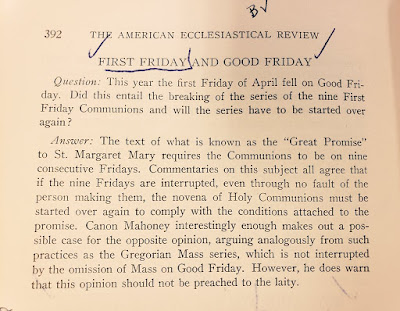The Procession of St. Gregory by Jacopo Zucchi
The following is taken from the Decree of the Apostolic Penitentiary on the granting of special Indulgences to the faithful in the current pandemic issued on March 20, 2020:
The gift of special Indulgences is granted to the faithful suffering from COVID-19 disease, commonly known as Coronavirus, as well as to health care workers, family members and all those who in any capacity, including through prayer, care for them.
“Be joyful in hope, patient in affliction, faithful in prayer” (Rom 12: 12). The words written by Saint Paul to the Church of Rome resonate throughout the entire history of the Church and guide the judgment of the faithful in the face of all suffering, sickness and calamity.
The present moment in which the whole of humanity, threatened by an invisible and insidious disease, which for some time now has become part of all our lives, is marked day after day by anguished fears, new uncertainties and above all widespread physical and moral suffering.
The Church, following the example of her Divine Master, has always had the care of the sick at heart. As Saint John Paul II points out, the value of human suffering is twofold: “It is supernatural because it is rooted in the divine mystery of the Redemption of the world, and it is likewise deeply human, because in it the person discovers himself, his own humanity, his own dignity, his own mission” (Apostolic Letter Salvifici Doloris, 31).
Pope Francis, too, in these recent days, has shown his paternal closeness and renewed his invitation to pray incessantly for those who are sick with the Coronavirus.
So that all those who suffer because of COVID-19, precisely in the mystery of this suffering, may rediscover “the same redemptive suffering of Christ” (ibid., 30), this Apostolic Penitentiary, ex auctoritate Summi Pontificis, trusting in the word of Christ the Lord and considering with a spirit of faith the epidemic currently underway, to be lived in a spirit of personal conversion, grants the gift of Indulgences in accordance with the following disposition.
The Plenary Indulgence is granted to the faithful suffering from Coronavirus, who are subject to quarantine by order of the health authority in hospitals or in their own homes if, with a spirit detached from any sin, they unite spiritually through the media to the celebration of Holy Mass, the recitation of the Holy Rosary, to the pious practice of the Way of the Cross or other forms of devotion, or if at least they will recite the Creed, the Lord's Prayer and a pious invocation to the Blessed Virgin Mary, offering this trial in a spirit of faith in God and charity towards their brothers and sisters, with the will to fulfil the usual conditions (sacramental confession, Eucharistic communion and prayer according to the Holy Father's intentions), as soon as possible.
Health care workers, family members and all those who, following the example of the Good Samaritan, exposing themselves to the risk of contagion, care for the sick of Coronavirus according to the words of the divine Redeemer: “Greater love has no one than this: to lay down one’s life for one’s friends” (Jn 15: 13), will obtain the same gift of the Plenary Indulgence under the same conditions.
This Apostolic Penitentiary also willingly grants a Plenary Indulgence under the same conditions on the occasion of the current world epidemic, also to those faithful who offer a visit to the Blessed Sacrament, or Eucharistic adoration, or reading the Holy Scriptures for at least half an hour, or the recitation of the Holy Rosary, or the pious exercise of the Way of the Cross, or the recitation of the Chaplet of Divine Mercy, to implore from Almighty God the end of the epidemic, relief for those who are afflicted and eternal salvation for those whom the Lord has called to Himself.
The Church prays for those who find themselves unable to receive the Sacrament of the Anointing of the Sick and of the Viaticum, entrusting each and every one to divine Mercy by virtue of the communion of saints and granting the faithful a Plenary Indulgence on the point of death, provided that they are duly disposed and have recited a few prayers during their lifetime (in this case the Church makes up for the three usual conditions required). For the attainment of this indulgence the use of the crucifix or the cross is recommended (cf. Enchiridion indulgentiarum, no.12).
May the Blessed Virgin Mary, Mother of God and of the Church, Health of the Sick and Help of Christians, our Advocate, help suffering humanity, saving us from the evil of this pandemic and obtaining for us every good necessary for our salvation and sanctification.
The present Decree is valid notwithstanding any provision to the contrary.
Given in Rome, from the seat of the Apostolic Penitentiary, on 19 March 2020.
Mauro Cardinal Piacenza
Major Penitentiary




















